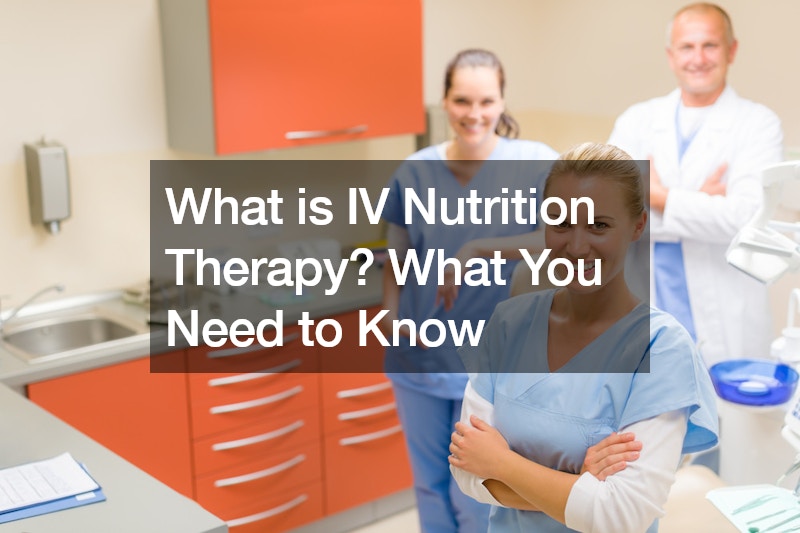Understanding IV Nutrition Therapy
IV Nutrition Therapy involves the intravenous administration of a customized blend of vitamins, minerals, antioxidants, and other nutrients directly into the bloodstream. Unlike oral supplements, which must pass through the digestive system and may be subject to variable absorption rates, IV therapy bypasses these barriers, allowing for rapid and efficient absorption of nutrients. This direct infusion ensures that the body receives high concentrations of essential nutrients, promoting optimal cellular function and overall well-being.
Different Types of IV Therapy
Intravenous (IV) therapy encompasses a wide range of formulations tailored to address various health needs. One common type is hydration therapy, which delivers a balanced solution of electrolytes and fluids directly into the bloodstream to combat dehydration efficiently.
This is particularly beneficial for individuals experiencing severe dehydration due to illness, exercise, or excessive alcohol consumption. Another popular form is vitamin IV therapy, which involves administering vitamins, minerals, and antioxidants intravenously to bypass the digestive system and deliver nutrients directly to the cells. For example, high-dose vitamin C IV therapy has gained attention for its potential immune-boosting properties and antioxidant benefits. Additionally, IV therapy can include specialized formulations for detoxification, skin rejuvenation, athletic performance enhancement, and hangover relief, among other purposes. Each type of IV therapy is formulated with specific ingredients to target different health concerns and promote overall well-being.
The Benefits of IV Therapy
IV therapy offers several advantages over oral supplements, including:
- Enhanced Absorption: Unlike oral supplements, which may have limited absorption rates due to digestive processes, IV therapy ensures that nutrients are delivered directly into the bloodstream, bypassing the digestive system.
- Rapid Results: Because IV therapy delivers nutrients directly into the bloodstream, patients often experience faster results compared to oral supplementation, making it an ideal option for individuals seeking immediate relief or energy boost.
- Higher Nutrient Levels: IV therapy allows for the administration of higher doses of nutrients that may not be achievable through oral supplementation alone. This is particularly beneficial for individuals with nutrient deficiencies or specific health conditions.
Common Nutrients Used in IV Therapy
IV nutrition therapy typically includes a combination of essential vitamins, minerals, amino acids, and other nutrients tailored to address specific health concerns. Some of the most commonly used nutrients in IV therapy include:
- Vitamin C: Known for its immune-boosting properties, vitamin C is often included in IV therapy formulations to support immune function and overall health.
- NAD (Nicotinamide Adenine Dinucleotide): NAD is a coenzyme involved in cellular energy production and metabolism. IV therapy with NAD has been shown to improve mitochondrial function and enhance energy levels.
- B Vitamins: B vitamins, including B12, B6, and B complex, play essential roles in energy metabolism, nervous system function, and mood regulation. IV therapy with B vitamins is commonly used to address fatigue, stress, and mood disorders.
- Minerals: Minerals such as magnesium, calcium, and zinc are vital for various physiological functions, including muscle function, bone health, and immune support. IV therapy can help replenish mineral levels and promote overall wellness.
Considerations and Safety
While IV Nutrition Therapy offers promising benefits, it is essential to approach it with caution and under the guidance of qualified healthcare professionals. Before undergoing IV therapy, individuals should undergo a thorough evaluation to assess their medical history, current health status, and specific nutritional needs. Additionally, IV therapy should only be administered by trained practitioners in a clinical setting to ensure safety and efficacy.
Potential risks associated with IV therapy include allergic reactions, vein irritation, and infection at the injection site. To minimize these risks, sterile techniques must be employed during the IV insertion process, and patients should be monitored closely throughout the treatment session. Furthermore, individuals with certain medical conditions, such as kidney disease or congestive heart failure, may need to avoid or modify their IV therapy regimen to prevent adverse effects.
Consultation and Administration
Prior to receiving IV therapy, individuals undergo a consultation with a qualified healthcare provider to assess their health status, discuss their goals, and determine the appropriate nutrient formulation. During the IV administration process, a healthcare professional inserts a small needle into a vein, typically in the arm or hand, and connects it to an IV drip containing the customized nutrient solution. The infusion process typically takes 30 to 60 minutes, during which patients can relax and unwind.
IV Therapy for Specific Health Conditions
IV nutrition therapy has shown promising results in addressing various health conditions and improving overall wellness. For instance, for individuals suffering from migraines, IV therapy containing magnesium and other nutrients has been reported to reduce the frequency and severity of headaches. Fibromyalgia patients may benefit from IV therapy sessions designed to replenish essential vitamins and minerals, alleviate fatigue, and support cellular function. Moreover, IV therapy with NAD (nicotinamide adenine dinucleotide) has emerged as a potential treatment option for enhancing mitochondrial function, which plays a crucial role in energy production within cells. Research suggests that restoring mitochondrial function with NAD therapy may alleviate symptoms of fatigue and improve overall energy levels in individuals with conditions like chronic fatigue syndrome. These targeted IV therapy approaches aim to address underlying nutritional deficiencies, support immune function, and enhance cellular health to promote optimal wellness and symptom management for various health conditions.
Conclusion
IV nutrition therapy offers a convenient and effective way to replenish essential nutrients, support overall health, and address specific health concerns. Whether you’re seeking immune support, energy enhancement, or recovery assistance, IV therapy may provide the nutritional boost your body needs.
.



